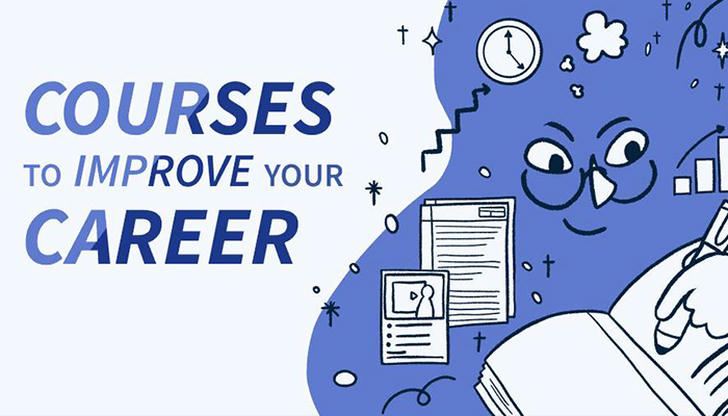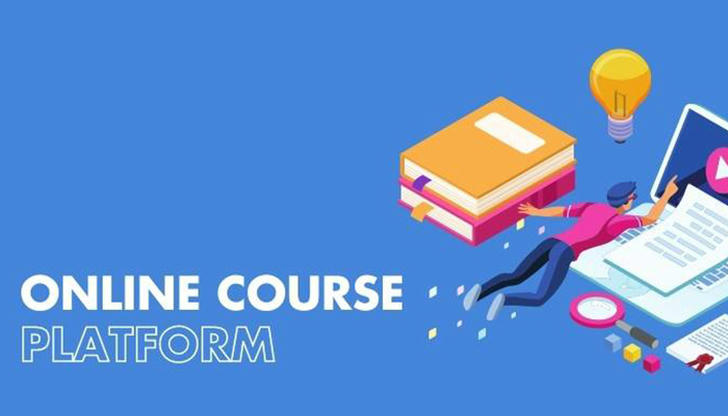The Power of Online Courses: Boosting Your Career from Home
In a world increasingly shaped by digital transformation, online learning has become a powerful tool for personal and professional growth. From busy professionals to career changers, millions of people around the globe are now turning to online courses to upgrade their skills, gain new qualifications, and boost their careers — all without stepping outside their homes.

Why Online Learning Has Become So Popular
Online education has been around for decades, but its popularity skyrocketed during and after the COVID-19 pandemic. Today, it's no longer just an alternative to traditional learning — it's a first choice for many. Here’s why:
- Flexibility: Learners can study anytime, anywhere, fitting coursework around jobs, families, or other responsibilities.
- Affordability: Many online courses are free or low-cost, reducing the financial burden associated with traditional education.
- Access to Global Experts: Platforms partner with top universities and professionals, offering world-class content.
- Custom Learning Paths: Students can tailor their learning journey based on interests, goals, and time availability.
These factors combined have made online education an essential option for lifelong learners and career-oriented individuals.
Career Benefits of Taking Online Courses
Online courses offer more than just knowledge — they open doors. Here are the key ways they can enhance your career:
1. Upskilling and Reskilling
Industries evolve rapidly. To stay relevant, professionals must continuously upskill (enhance current skills) or reskill (learn entirely new ones). For example, an accountant might learn about financial analytics, while a teacher may explore educational technology tools.
2. Professional Certifications
Earning certifications from respected platforms like Google, Microsoft, or PMI can boost your resume and credibility. Whether it’s a Google Data Analytics Certificate or an AWS Certified Cloud Practitioner, such credentials demonstrate proficiency and a commitment to continuous learning.
3. Increased Earning Potential
Research shows that professionals who complete job-related online courses are more likely to receive salary increases or promotions. Many companies even reimburse course fees when they contribute directly to job performance.
4. Showcasing Self-Discipline and Initiative
Employers value people who take charge of their development. Completing online courses shows you’re proactive, self-motivated, and able to manage time effectively — all desirable traits in any workplace.

Types of Online Courses That Boost Careers
The diversity of online courses allows people from all industries to find learning paths that match their goals:
- Technology Courses: Learn coding, software engineering, data science, machine learning, and cybersecurity.
- Business and Management: Topics include marketing, finance, HR management, entrepreneurship, and leadership.
- Soft Skills Training: Courses on communication, teamwork, critical thinking, and emotional intelligence.
- Vocational Certifications: For aspiring professionals in healthcare, education, IT support, and skilled trades.
- Freelance and Creative Skills: Graphic design, writing, video editing, and digital marketing can open doors to freelance gigs or creative roles.

Best Platforms and Resources
The online learning landscape is vast, but several platforms stand out for their quality, variety, and industry recognition:
- Coursera: Offers courses from universities like Stanford, Yale, and companies like Meta and Google.
- edX: Features academic courses from MIT, Harvard, and other top institutions.
- Udemy: A large selection of affordable, skill-based courses created by industry professionals.
- LinkedIn Learning: Focuses on workplace skills, soft skills, and business tools.
- Skillshare: Excellent for creative fields like illustration, photography, and content creation.
Each platform has unique strengths, so choosing one depends on your career focus and learning style.
Real-Life Success Stories
Thousands of professionals have transformed their careers through online learning. Here are a few examples:
Case 1: Data Analyst from Retail Work
A former cashier completed data analysis courses on Coursera and now works as a junior data analyst at a tech startup.Case 2: Stay-at-Home Parent Returns to Work
After years away from the workforce, one mother completed LinkedIn Learning's customer service courses and landed a remote support role.Case 3: Freelance Designer
A college student used Skillshare to learn Adobe Illustrator and now earns a steady income designing logos and social media graphics for small businesses.
These stories illustrate how self-paced online learning can lead to real, measurable results.

How to Choose the Right Online Course
Not all courses are created equal. Here are some tips to help you choose wisely:
- Set Clear Career Goals: Are you aiming to get promoted, switch fields, or earn more? Your goal should guide your course choice.
- Check Course Content: Review the syllabus to ensure it covers relevant and up-to-date topics.
- Look for Certification: If possible, choose courses that offer completion certificates or credentials recognized by employers.
- Research the Instructor: Instructors with real-world experience bring valuable insights.
- Read Reviews: Past learner feedback can give insights into the course’s effectiveness and relevance.
Tips for Learning Effectively from Home
Even the best course won’t help if you can’t stay on track. Here’s how to maximize your online learning experience:
- Create a Study Schedule: Allocate specific time blocks to stay consistent.
- Set Up a Study Space: A quiet, organized area can improve focus.
- Take Notes and Practice: Active learning is more effective than passive watching.
- Engage with Others: Join course forums or online communities for support and motivation.
- Apply What You Learn: Practice skills through projects or by freelancing.
The Future of Online Learning in Career Development
The growth of online education is just beginning. As technology advances, we can expect:
- AI-Powered Learning: Platforms will offer personalized study paths based on your progress and preferences.
- Virtual Simulations: Interactive tools will let students practice real-world tasks in safe digital environments.
- Microcredentials and Digital Badges: These will become standard parts of hiring and promotion processes.
- Integration with Workplaces: Employers will increasingly rely on online courses to train and upskill teams.
Online learning will continue to blur the lines between formal education and professional development, offering more people more opportunities.

Conclusion
Online courses are reshaping the future of work and learning. They offer unmatched flexibility, affordability, and access to valuable skills. Whether you’re advancing in your current role, exploring a new career, or launching your own business, learning from home can be your first step toward success.
Remember: You don’t need a classroom to learn — just curiosity, discipline, and a reliable internet connection.
